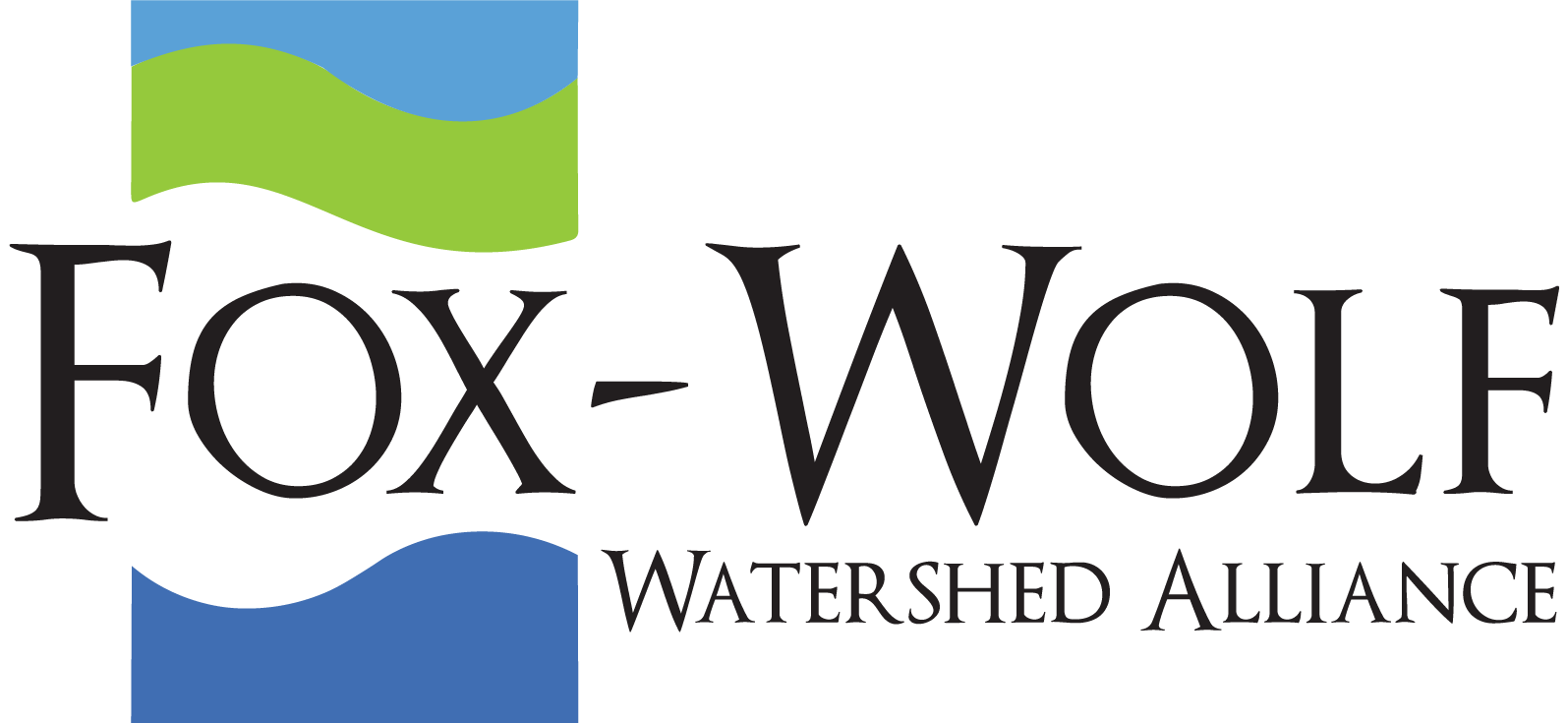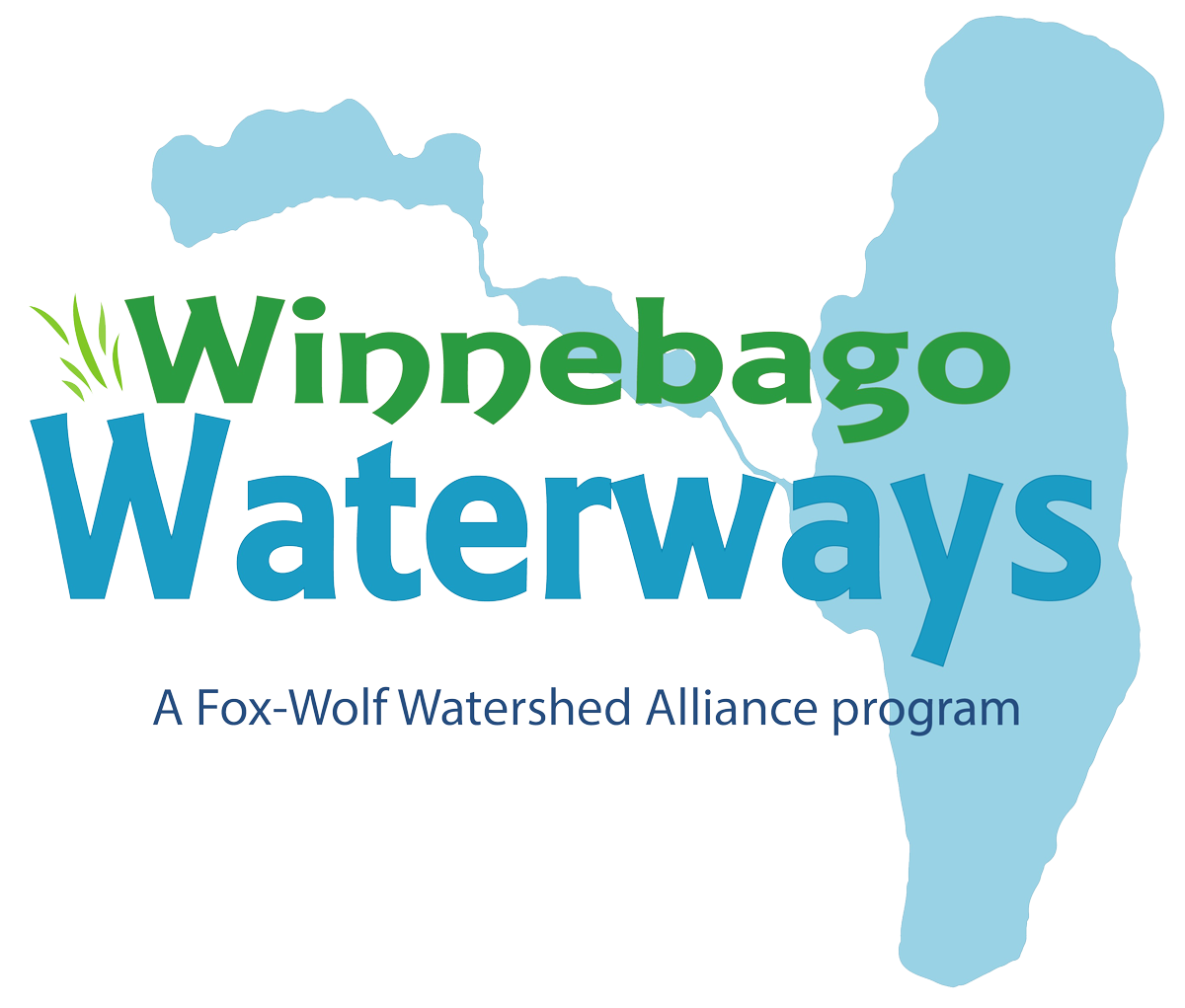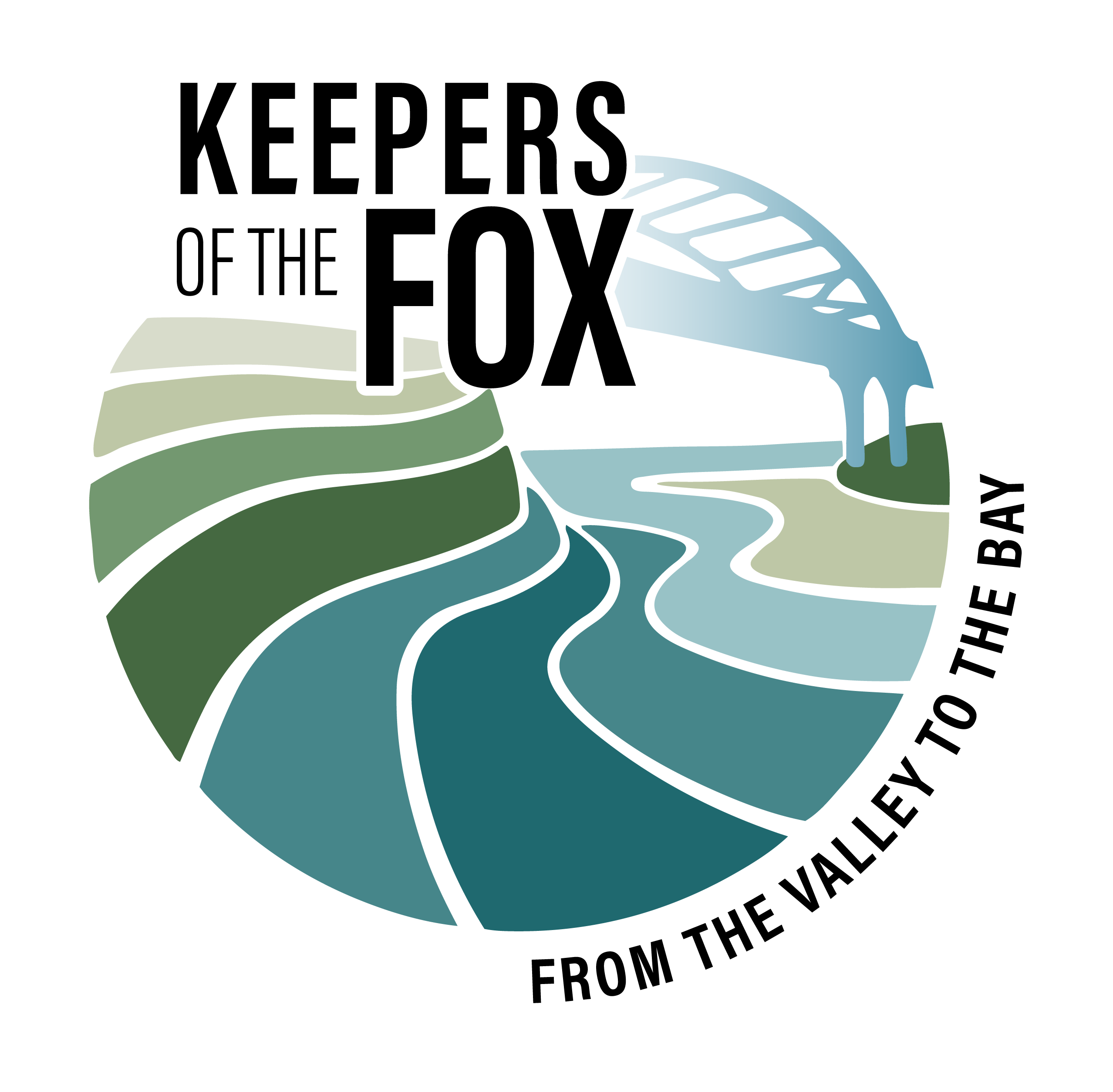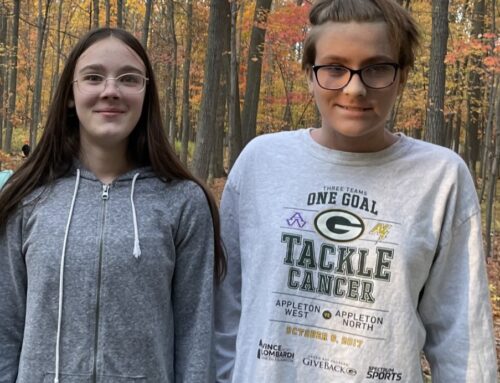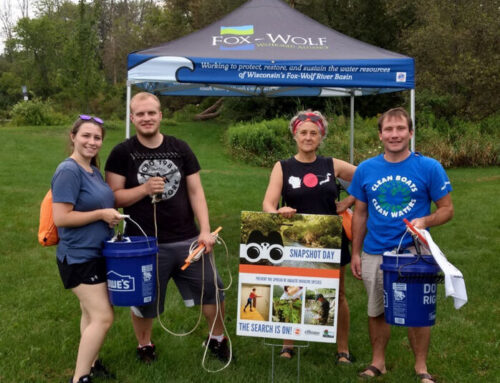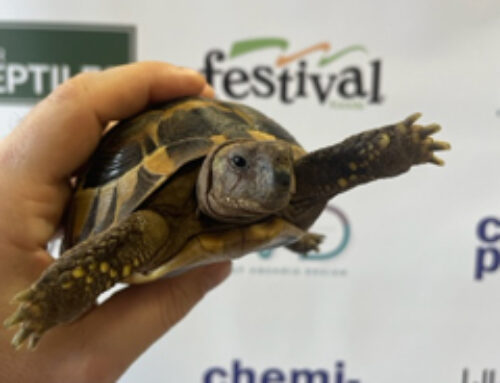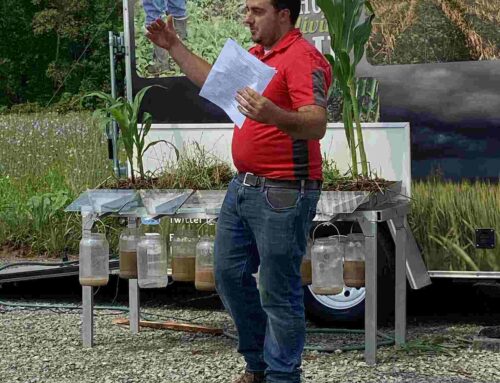When making conservation plans, producers and conservation professionals alike want to know the impact that farm practices have on our local water. Through work funded by Great Lakes Restoration Initiative, Fox-Wolf Watershed Alliance and Outagamie County have developed a Farm Progress Report to tell the story of conservation, one farm at a time.
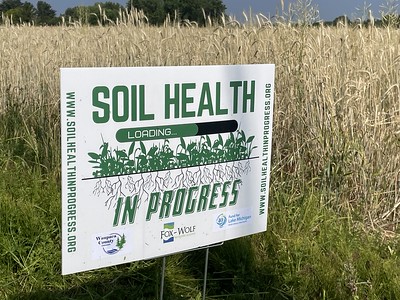
The Farm Progress Report utilizes data from SNAP+, a program widely used by Wisconsin farmers, to generate modeled soil and phosphorus loss on each field based on soil type, phosphorus test results, and field management (tillage, manure management, crop cycle, etc).
This information is then compiled to create per field and per farm loss data, which is compared to the local conservation goal of 1 lb per acre per year of phosphorus loss and 0.5 tons per acre per year of soil loss. This information is visualized in the Farm Progress Report through simple to read graphs that include the annual average compared to the community goal as well as tables that list the top ten fields to improve.
The Farm Progress Report has two purposes:
- Farm Knowledge: For farmers to understand the impact of their current farm practices on water quality, the goals for the community, and how they can make changes on their farm to improve their phosphorus and soil loss
- Communication: Farmers can utilize the Farm Progress Report to communicate with their local communities to show the positive impact they are having as well as to their processors to show that they have adopted conservation practices that may meet the processor’s environmental standards
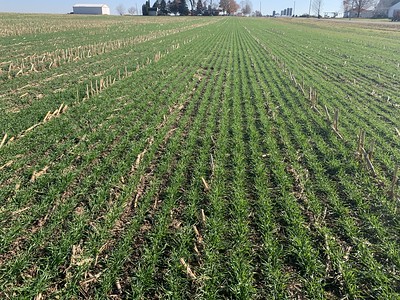

A Farm Progress report was generated for each producer participating in the GLRI grant project and Fox-Wolf Watershed Alliance and Outagamie County LWCD met with each farm, along with their agronomist. The Farm Progress Report was presented to each farm with an explanation of where the data was derived from, the community goal, and where their current farm practices compared to the goal. Feedback was solicited from the producer and their agronomist on the information presented and the response was positive. Producers understood the how the data was derived, how their on-field practices generated that data, and were interested in the potential of using the Farm Progress Report to communicate the great work they are doing to meet conservation goals in their watershed.
Further work will need to be done to streamline the data collection and input process and to ensure that the SNAP+ system is used consistently across the basin. Overall, the Farm Progress Report was well received by farmers and they expressed interest in continuing to use it to watch their progress toward improving water quality. Fox-Wolf Watershed Alliance intends to continue developing the report and promoting its widespread adoption to producers outside of this project.
Questions? Contact us:
Climate Smart Agriculture Project Manager: Katie Woodrow, 920.915.5767 or katie@fwwa.org
To receive periodic updates on these projects as well as many others, please subscribe to our newsletters: CLICK HERE
